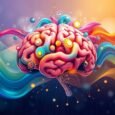The Evolution of AI in Music Production
The development of artificial intelligence in music production has undergone significant transformation since its inception. Early intrusions of AI in the music realm can be traced back to the 1950s, with composers like Alan Turing exploring algorithmic compositions. These foundational attempts laid the groundwork for more advanced systems, eventually leading to the emergence of computer-generated music in the 1980s. Algorithms started to evolve, enabling the creation of intricate melodies and harmonies, demonstrating the potential of AI as a creative partner.
In the following decades, the integration of AI into music composition became more sophisticated. With the advent of machine learning and neural networks, particularly Generative Adversarial Networks (GANs), composers began to harness these technologies to generate original pieces that mirrored the complexity of human-created music. Noteworthy projects include OpenAI’s MuseNet and Google’s Magenta, both of which utilize advanced AI techniques to compose music across various genres, illustrating the diverse applications of these innovations.
Modern applications of AI extend beyond composition to encompass music production and live performances. AI-powered tools are now integral to digital audio workstations, allowing producers to analyze sound profiles, mix tracks, and even suggest arrangements. These systems help streamline the production process while providing unique creative suggestions, thus enhancing artistic expression. Additionally, live performances are being transformed with AI technology. Artists are collaborating with AI systems to create immersive experiences where the machine responds in real-time, creating a dynamic interplay between human musicians and artificial intelligence.
The impact of AI-generated music is profound, altering how music is created and consumed. As the technology continues to evolve, it raises questions about originality, the role of human creativity, and the ethical implications surrounding AI in the arts. The modernization of music through AI tools signifies a new frontier in artistic innovation that challenges traditional paradigms while promoting exploration and collaboration.
Creativity: Can AI Truly Create Music?
The exploration of creativity in the realm of artificial intelligence (AI) raises significant philosophical questions, particularly regarding whether AI can genuinely create music or merely reproduce existing patterns found in human compositions. Traditional definitions of creativity often involve an emotional and cognitive depth associated with human experiences, which prompts critical introspection about the role of machines in artistic expression. Musicians, producers, and AI researchers present varying perspectives on this complex relationship.
Proponents of AI-generated music argue that algorithms can produce unique compositions that resonate with listeners. For instance, AI systems like OpenAI’s MuseNet and AIVA have demonstrated a remarkable ability to generate pieces across various genres, often mimicking the styles of renowned composers such as Beethoven and Bach. These creations showcase an astonishing level of sophistication, often challenging the conventional boundaries of originality in music. However, critics point out that these algorithms rely heavily on pre-existing data. Essentially, the output is a product of learned patterns rather than an innovation born from personal experience or emotional depth.
The distinction between human creativity and algorithm-driven outputs becomes even more pronounced when considering the emotional connection often felt in human-created music. Musicians often infuse their work with emotions and messages derived from their personal narratives, experiences, and cultural contexts. This rich tapestry of emotions is challenging for AI to replicate authentically, as machines lack genuine personal history or emotional depth.
As AI technology advances, the discourse surrounding music creation continues to evolve, raising important questions about the future of original music. Will AI become a collaborative partner for artists, or will it supplant the need for human creativity? Conversely, could AI serve merely as a tool that assists in the creative process rather than competing with it? The answers to these questions will undoubtedly shape how we understand creativity in the context of artificial intelligence and its role in the evolving landscape of music.
Ethical Considerations in AI-Generated Music
The introduction of artificial intelligence into the realm of music creation introduces a complex web of ethical considerations. One notable issue is the question of copyright. As AI systems can generate original compositions, the determination of who holds the copyright to these works becomes ambiguous. Current laws typically credit the human creator of the music, yet with AI, who is the true creator? This raises significant concerns regarding ownership and intellectual property rights, particularly in cases where AI-generated content closely resembles existing musical works.
Furthermore, the potential for job displacement within the music industry is a pressing ethical dilemma. Automation, facilitated by AI technologies, threatens to replace traditional roles such as songwriters, composers, and even performers. While proponents argue that AI can enhance creativity, critics highlight the risk of devaluing human labor and reducing the need for human musicians. This creates a paradox where the technology, meant to augment artistic expression, may inadvertently render the skills of human creators less relevant.
The responsibilities of creators and companies utilizing AI technology demand careful consideration. Music producers and labels have a duty to be transparent about the use of AI in their projects, ensuring that consumers understand whether a piece of music was created through human effort or AI algorithms. Real-world cases illustrate the necessity for ethical guidelines, as several high-profile incidents highlight the potential for misuse of AI-generated content and resulting backlash from artists. Legal frameworks must adapt to these new challenges, potentially requiring updated regulations that account for the unique issues posed by AI involvement in creative processes.
The Human Touch: Balancing AI and Authenticity
As artificial intelligence (AI) technologies continue to evolve, their effects on various artistic domains, particularly music, become increasingly profound. While AI can generate novel sounds and compositions, it lacks the emotional depth and nuanced understanding that characterize human creativity. This distinction raises fundamental questions about authenticity in music. Musicians strive to express their individual experiences and emotions through their work, something that AI, despite its capabilities, cannot replicate. The essence of music often lies not just in its technical composition but in the stories, feelings, and experiences that human artists convey.
Artists increasingly recognize the potential benefits of integrating AI tools into their creative processes without compromising their personal artistic voice. By embracing a hybrid approach, musicians can collaborate with AI to enhance their work rather than replace the core human elements that define their sound. For example, AI can serve as a valuable assistant, providing new ideas for melodies or harmonies, while the artist retains control over lyrical content and emotional delivery. This partnership allows for an innovative exploration of musical possibilities, ensuring that the human touch remains present throughout the creative journey.
The relationship between musicians and AI does not negate the importance of personal expression. Instead, it invites artists to reflect on their authenticity and how it relates to technology. Many musicians express a desire to maintain their unique identities despite the rise of AI-generated music. By fostering environments where human creativity is complemented by AI, artists can navigate the complexities of modern music production while safeguarding their individual voices. Ultimately, the balancing act between AI capabilities and the irreplaceable human touch will continue to shape the future of music, emphasizing that technology, when used thoughtfully, can coexist with and enhance authentic artistic expression.





